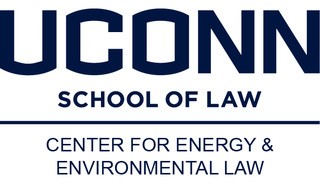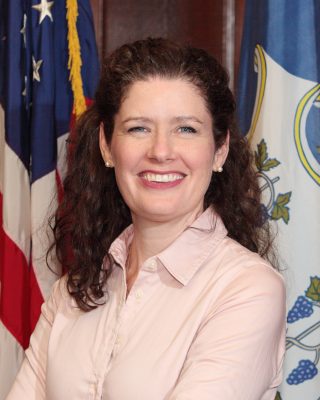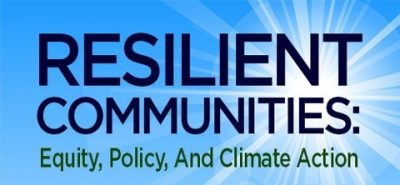UCONN EARTH DAY CONFERENCE
April 22, 2022
9:00 am – 1:15 pm
A recording of the conference is
NOW AVAILABLE
- Explored the relationship between food, equity, environmental justice, and climate change;
- Learned about new tools and policies to assess and address climate vulnerability;
- Recognized issues and overlap between resilience science, financing, and planning; and
- Learned about support for and development of a Connecticut resilience project pipeline.
AGENDA
| 9:00 - 9:15 | Welcome |
| 9:15 - 9:45 | Keynote: Decision-Making Challenges Facing Municipalities in a Time of Climate Change
Dr. Linda Shi – Cornell University, Department of City and Regional Planning Link to donate to Afghan refugee family in New Haven as mentioned in keynote address |
| 9:45 - 10:40 | National Perspectives - Panel 1: Local Decision Making for Resilient Food Supply |
| Moderator: Carol Atkinson-Palombo, UConn Department of Geography
Panelists: |
|
| 10:40 - 10:45 | Break |
| 10:45 - 11:00 | Earth Day Remarks
Katie Dykes, Commissioner CT DEEP |
| 11:00 - 12:00 | National Perspectives – Panel 2: Priorities for Municipal Resilience Planning |
| Moderator: Joseph MacDougald, UConn Law CEEL
Panel Framing Remarks: Christine Cohen – CT Senator & Chair, Senate Environment Committee Panelists: Jim O’Donnell – UConn CIRCA |
|
| 12:00 - 12:15 | Resilient Connecticut - Where We've Been and Where We're Going
Project Update: John Truscinski, UConn CIRCA |
12:15 - 1:15 Breakout Topics |
Speakers |
| Session A
Developing a Resilience Project Pipeline Moderated by David Murphy, UConn CIRCA |
Panel members:
|
| Session B
Municipal Policy Solutions for Climate Resilience Co-Moderated by Louanne Cooley, UConn CEEL and Joanna Wozniak-Brown, UConn CIRCA |
Panel members:
|
| Session C
Climate Tools & Policy for Environmental Justice |
Panel Members:
|
Breakout Session Summaries
Session A – Developing a Resilience Project Pipeline
Summary: A resilience project pipeline includes the steps necessary for planning and executing climate adaptation and resilience projects, whether they are nominal in size and scope or complex such as Resilient Bridgeport. Populating the resilience project pipeline will require looking back at completed projects that have reduced damage from flooding and other hazards, re-casting projects listed in existing plans to ensure that all facets of resilience are considered, and developing new ideas and funding to tackle threats from climate change.
Moderator: David Murphy, UConn CIRCA
Panel Members:
- Bill Hurley, Town of Fairfield
- Giovanni Zinn, City of New Haven
- Emily Pysh, CT Dept. Of Transportation
- Sarah Watson, CT Dept. Of Energy and Environmental Protection (CT DEEP), Office of Climate Planning
Session B – Municipal Policy Solutions for Climate Resilience
Summary: This breakout session will focus on legal and policy solutions to increase municipal resilience to climate change. States have a role in providing municipalities with access to tools to identify vulnerabilities and take action to address them by authorizing financial mechanisms underlying local climate resilience solutions. Municipalities can also use legal mechanisms, like ordinances and regulation changes to encourage local climate resilience. Our panelists will discuss how the state has supported municipal resilience goals and what policy solutions can help further. We will explore the tools currently available, what needs are still to be addressed, and how to engage the public in municipal resilience to foster understanding and promote equitable solutions.
Moderators: Louanne Cooley, UConn CEEL Legal Fellow & Joanna Wozniak-Brown, UConn CIRCA
Panel members:
- Sam Alexander – Southeastern CT Council of Governments
- James Finch – Town of Branford
- Rudy Marconi – Town of Ridgefield
- Rebecca French – Office of Climate Planning, CT DEEP
Session C – Climate Tools and Policy for Environmental Justice
Summary: This breakout session draws attention to the widening field of environmental and climate justice mapping and data analysis tools that seek to identify overburdened and underserved communities. These tools focus on depicting data related to environmental exposures, socio-economic indicators that amplify risks, and additional conditions that limit the community’s ability to reduce harm. Data and data-driven resource allocation can be another exercise in power and privilege without adequate safeguards on their deployment. While these new tools offer a potential for long overdue recognition and redressing of compounding burdens, the way that these tools are integrated into policies and programs will be a critical factor in their efficacy. The panelists, all of them engaged in climate change, environmental justice, and/or public policy, bring unique perspectives on the role these tools play in policies that could have multi-generational impacts on environmental justice communities.
Moderator: Eloise Reid, Environmental Justice Community Coordinator, UConn CIRCA
Panel Members:
- Laura Bozzi – Yale Center on Climate Change and Health
- Yaprak Onat – UConn CIRCA
- Aziz Dehkan – CT Roundtable on Climate and Jobs
- Lee Cruz - Community Foundation of Greater New Haven
A recording of this event will be on our YouTube page. We hope you subscribe.
Funding for this project is provided in part by the United States Department of Housing and Urban Development through the Community Block Grant National Disaster Recovery Program, as administered by CT DOH.
 |
 |
Linda Shi

Keynote Address
Assistant Professor - Cornell University, Department of City and Regional Planning
Katie Dykes

Earth Day Remarks
Commissioner - Connecticut Department of Energy and Environmental Protection
Senator Cohen

Panelist
State Senator & Chair, Senate Environment Committee
LOCATION
Virtual (a link to join will be sent to registrants 4/21/22)
CONTACT
Katie Lund, UConn CIRCA, katie.lund@uconn.edu
Louanne Cooley, UConn CEEL, louanne.cooley@uconn.edu
